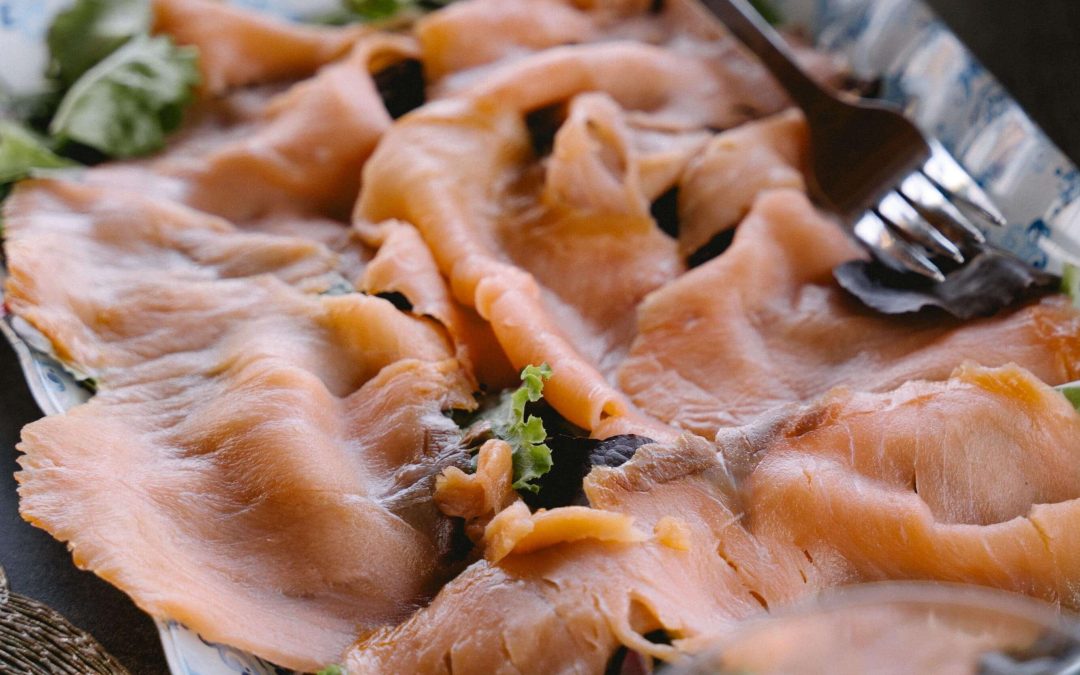If you’re like most of the women we work with, you’ve probably tried crash diets before. When weight gain creeps in during menopause, it can feel like the only way to fix it is to slash your calories and ramp up your workouts.
But even when you stick to those diets perfectly, the weight either doesn’t shift, or it comes right back. And you’re left feeling hungrier, more tired, and more frustrated than when you started.
This is one of the most common struggles we see. Women in their 40s, 50s and beyond think they just need more willpower or to “do better” next time. But the truth is, your body has changed and the old rules no longer apply.
Hormonal shifts in perimenopause and menopause affect metabolism, muscle mass, appetite, and how your body stores fat. So what used to work in your 20s or 30s simply doesn’t work anymore.
Here’s what to do instead for long-term, sustainable weight loss, even if everything you’ve tried so far has failed.

What Is a Crash Diet?
Crash diets are those extreme plans that drastically reduce your food intake or restrict entire food groups in an effort to lose weight quickly.
Think weight loss jabs which reduce your appetite, 1200-calorie meal plans, juice cleanses, shake diets, keto, fasting or cutting out all carbs. These diets promise fast weight loss, but they come at a steep cost to your health, your hormones, and your ability to maintain the weight loss.
For postmenopausal women, these types of diets are especially harmful.
They ignore the complex hormonal changes happening in your body and can trigger a domino effect of issues like disrupted blood sugar levels, muscle loss, increased visceral fat, and worsening menopause symptoms like night sweats, low energy, and poor sleep.
The Reasons Crash Diets Are Doomed to Fail
Muscle Loss and Metabolic Damage
On a crash diet, your body does lose weight, but more importantly it loses muscle mass. This is critical because muscle helps regulate blood sugar, supports bone health, and keeps your metabolism running. Less muscle means fewer calories burned at rest, making long-term weight loss nearly impossible.
And for menopausal women, muscle is even more important. Hormone changes, particularly the decline in estrogen, naturally decrease muscle mass and increase body fat.
Losing more muscle through crash dieting only compounds the problem.
Cravings, Cortisol, and Hormonal Chaos
Crash diets send your stress hormone (cortisol) soaring. Cortisol is notorious for blocking weight loss in menopausal women, increasing belly fat, and disrupting hunger hormones like leptin and insulin.
This can lead to stronger cravings, fatigue, poor sleep, and emotional eating, which can make it harder to stick to any kind of plan.
Plus, severely restricting food messes with blood sugar levels. That means more energy crashes, mood swings, and a greater risk of developing insulin resistance, which is linked to both weight gain and long-term health issues like heart disease and type 2 diabetes.
Temporary Results and Long-Term Frustration
Most women find crash diets do work for the first week or two. But much of that initial weight loss is just water and muscle, not fat. Soon, your body fights back by slowing metabolism and increasing hunger, leaving you feeling worse than when you started.
When the weight inevitably comes back (and it often does with extra), it can feel like your body is working against you. But it’s not your fault, it’s the diet.

” I’m a yo-yo, yo-yoer. I tried all sorts of diets. I’ve juiced, I’ve done the Dukan Diet. I’ve done the GI diet. I’ve done… Goodness me. Yeah, all sorts. All sorts I’ve tried, and worked. The juice plan, loved it. Lost what you were expected to lose in the time. But then basically just found I would just end up back where I started. I remember sitting in my bedroom very, very low. at the time I was 11 stone, three and a half pounds. I’m eight stone now, which I would never have thought I’d ever have been. I feel comfortable in my skin, I love my body.
– Sarah Davies (43), Trinity Client
What Types of Diets To Avoid During Menopause
Many of the women we work with come to us after years of trying everything, yet nothing seems to work anymore. The problem isn’t a lack of willpower. It’s that the most common diets and quick fixes don’t support the body’s hormonal changes during menopause. In fact, most of them make things worse.
Very Low-Calorie Plans
Eating under 1200 calories might lead to quick weight loss at first, but it often backfires. These plans leave you constantly hungry, drain your energy, disrupt sleep, and slow your metabolism. Over time, they can cause rebound weight gain, leaving you heavier and more frustrated than before.
Keto and Low-Carb Diets
You may drop a few pounds quickly on keto, but much of it is water weight. Over time, the lack of carbohydrates can increase fatigue and disrupt hormone balance.
Carbs play an essential role in supporting your metabolism, physical activity and balanced blood sugar levels. Cutting them too low can leave you feeling flat and more prone to cravings.
Juice Cleanses and Meal Replacement Shakes
While they might sound healthy, these approaches are often severely lacking in two of the most important nutrients during menopause—protein and fibre. Without them, you risk losing muscle, slowing your metabolism and upsetting digestion. Plus, the results are rarely sustainable.
Intermittent Fasting
While some women see success with fasting, many find that it places added stress on an already sensitive hormonal system. Skipping meals or eating in narrow time windows can increase cortisol and worsen symptoms like poor sleep, fatigue, anxiety and weight gain.
“Clean Eating” and Popular Diet Plans
These approaches sound appealing, but without personalized guidance, many women end up undereating or becoming obsessed with rules around “good” vs “bad” foods. This can create a fear-based relationship with food and doesn’t teach you what your body actually needs during menopause to thrive.
Weight Loss Injections
Although they promise quick results, weight loss injections often come at the cost of your long-term health. Many women lose not just fat, but also muscle and bone mass.
Without the right nutrition and strength training, the weight that comes off is rarely the kind that keeps you feeling strong and vibrant. Worse still, when the injections stop, weight regain is common, often leading to feelings of defeat and even more imbalance.
Instead of helping you feel better, they can leave you feeling weaker, older, and more dependent on external fixes.
What You Should Do Instead to Lose Weight Sustainably
Crash diets don’t work in midlife, but there is a better way. When you work with your body and not against it, weight loss becomes far easier and much more sustainable.
Here are the five core strategies we use to help our clients consistently lose 15–25lbs in just 12 weeks, without hunger, overexercising, or giving up the foods they love.
1. Focus on Hormonally Balanced Eating
This is the foundation of everything we teach at Trinity. Rather than restrict or cut out foods, we help women balance their meals with the Key 3 nutrients: calories, protein, and fibre.
Get this right and you can lose weight consistently while still enjoying food. This approach stabilizes blood sugar, reduces cravings, and supports the muscle your body needs to stay strong and burn more calories.
How to do this:
Start by building every meal around a source of protein (like chicken, eggs, Greek yogurt or tofu), a generous portion of vegetables or salad for fibre, and enough calories from whole food carbs and healthy fats to feel satisfied.
Aim for 3 balanced meals a day, spaced evenly, and avoid skipping meals or grazing throughout the day. Planning your meals in advance can make this much easier, especially during busy weeks.
2. Prioritize Protein in Every Meal
Protein is absolutely essential during menopause. It helps maintain lean muscle, manage appetite, and improve body composition. Unfortunately, many women fall short, especially if they’re following a plant-based or “clean eating” approach.
As estrogen declines, the body becomes less efficient at building muscle, so protein needs actually increase with age. Without enough, your body struggles to stay firm and strong, and weight loss becomes much harder.
How to do this:
Aim for 25–30 grams of protein per meal, which is roughly the amount in a chicken breast, a scoop of high-quality protein powder, or a large bowl of Greek yogurt with seeds and nuts.
If you’re vegetarian or plant-based, pair different protein sources like legumes with whole grains to reach your target. Spread your protein across the day rather than loading it all into one meal to maximize its muscle-preserving effect.
3. Add Regular Physical Activity — the Right Way
Not all exercise supports weight loss in menopause. Too much cardio or high-intensity training can raise cortisol, disrupt recovery and stall fat loss.
Strength training, on the other hand, helps build and preserve muscle, supports joint health, improves mood, and keeps your metabolism strong. Just 3–4 sessions per week, combined with daily movement and restorative practices like yoga or stretching, can transform how your body feels and functions.
How to do this:
Focus on full-body strength training two to four times a week using moderate to heavy weights and slow, controlled movements.
This could be dumbbell or resistance band workouts at home or in the gym. Add in daily walks, around 8,000–10,000 steps a day where possible, and consider a short yoga flow or gentle mobility work a couple of times a week to support flexibility and stress reduction.
4. Eat a Balanced Diet, Not a Perfect One
You don’t need to eat perfectly to lose weight. A flexible, balanced approach works far better than strict rules or cutting out your favourite foods. We teach our clients how to include nutrient-dense whole foods, support their hormones, and enjoy treats in a way that still gets results.
This helps eliminate guilt, reduce binge eating and make the journey feel realistic and enjoyable.
How to do this:
Follow the 80/20 rule, to do this, you should aim for 80% of your intake to come from whole, minimally processed foods, and the remaining 20% can include things like chocolate, wine or crisps. Track how foods make you feel, both physically and emotionally and eat with awareness rather than restriction.
Having a plan that allows flexibility means you stay consistent without feeling deprived.
5. Make Lifestyle Changes That Support Your Health
Your results aren’t just shaped by what you eat and how you move. Sleep, stress, and recovery play a huge role too. Poor sleep increases hunger hormones and reduces willpower.
Chronic stress raises cortisol, worsens symptoms like hot flashes and brain fog, and leads to emotional eating. By supporting your body with simple lifestyle changes, you’ll find it easier to lose weight and keep it off.
How to do this:
Create an evening wind-down routine, consider dimming the lights, avoid screens for at least 30 minutes before bed, and try journaling or reading to signal your brain it’s time to rest.
Reduce stress during the day by scheduling breaks, getting fresh air, and setting healthy boundaries with work or family commitments. If you’re constantly overwhelmed, even just walking outside for 15 minutes can calm your nervous system and bring your cortisol levels down.

“Before Trinity If I’m honest I was at rock bottom. I had spent many years doing various diets of varying degrees if severity. Weight watchers, slimming world, lighter life, slim fast, some weird Australian diet among many many more. I was depressed, on anti depressants, type 2 diabetic and more miserable than I can possibly describe. This program has literally changed my life. I could not afford to sign up again last year but I borrowed to do so because this is the best thing that has ever happened to me. Everything has changed. I have lost 16kg and 21 inches all over and I’ve successfully come off all medication for my weight and I am no longer diabetic!”
– Rebecca Vears (51), Volunteer
How Trinity Can Help You Transform Your Body
We’ve worked with over 7000 women in their 40s and 50s who felt stuck, frustrated, and fed up with trying everything from keto to Slimming World, plant-based to fasting.
They wanted to feel strong, fit, confident, and free again, but nothing seemed to work like it used to.
Our approach is completely different. We don’t hand out cookie-cutter plans or promise overnight results. Instead, we provide a complete re-education, teaching you how to eat for your body now, how to train effectively, and how to make sustainable lifestyle changes that last.
This is a long-term transformation with a 97% success rate.
All while enjoying food again, without guilt or confusion.
If you’re tired of being tired, frustrated with diets that don’t work, and ready to feel like YOU again…
Frequently Asked Questions
What’s the best diet for a menopausal woman?
A balanced diet with enough protein, fibre, and healthy fats is best. It should support hormone balance, reduce cravings and preserve muscle.
How to lose weight fast when you’re in menopause?
Fast results come from a sustainable, hormone-supportive plan, not from restriction. The most effective methods include strength training, adequate protein and balanced meals.
Is 1200 calories a day enough for a menopausal woman?
For most women, no. Eating too little can slow metabolism, increase cortisol and make symptoms worse. A tailored intake based on your weight and activity level is far more effective.
What is the fastest way for a menopausal woman to lose weight?
The fastest and safest way is to follow a sustainable plan that includes hormonally balanced eating, strength training and lifestyle support. Crash diets don’t work long term and often make things worse.




